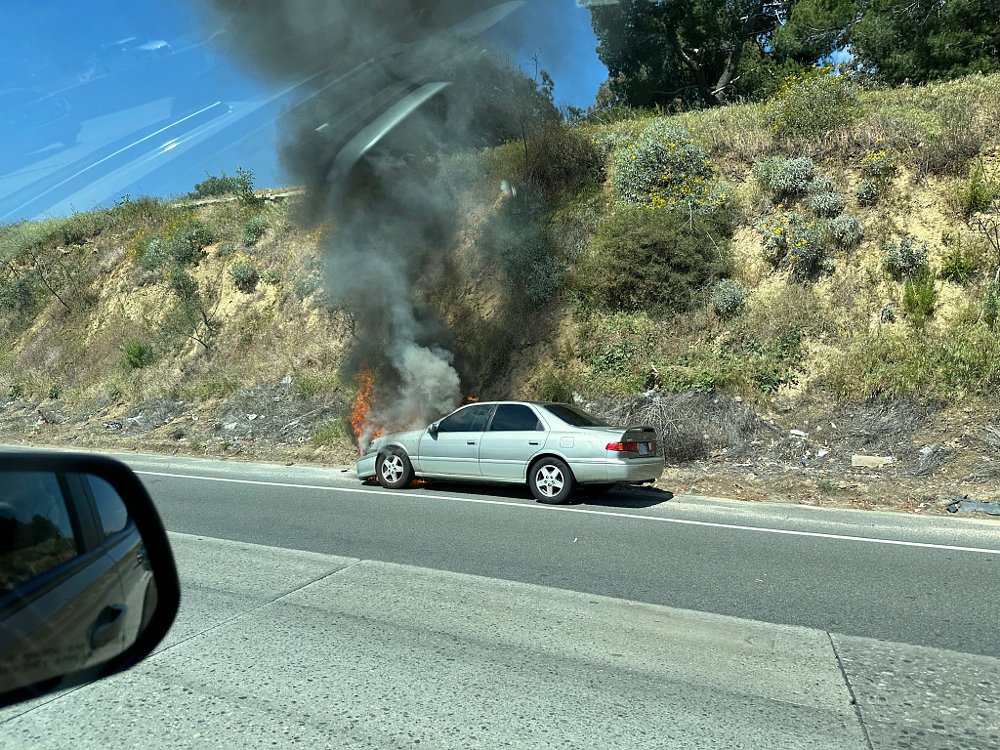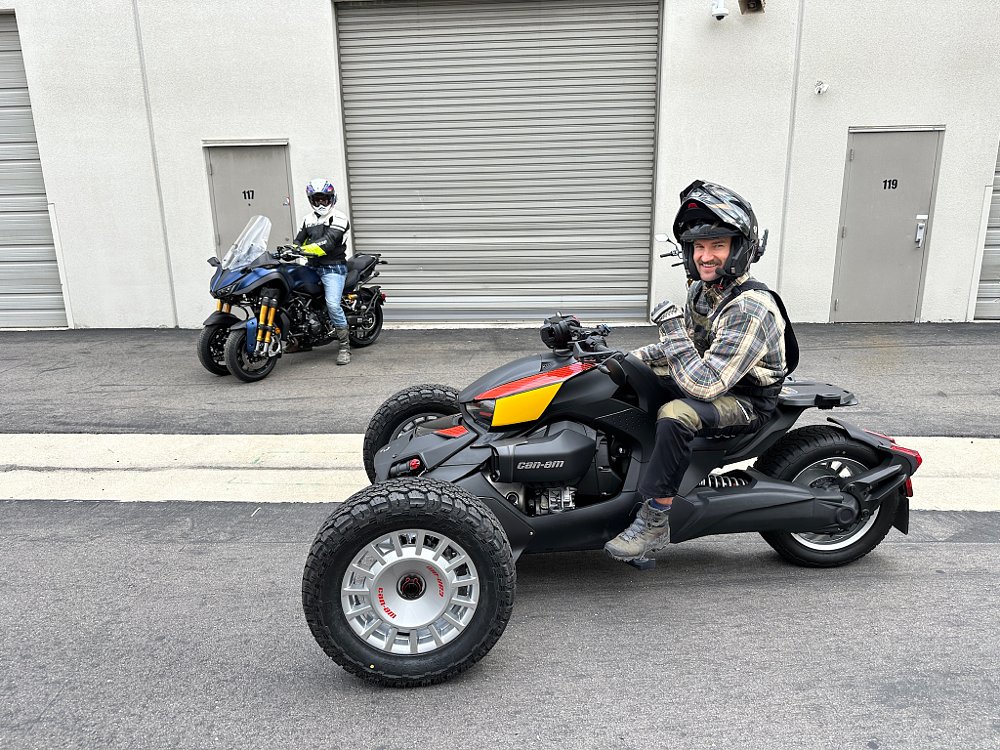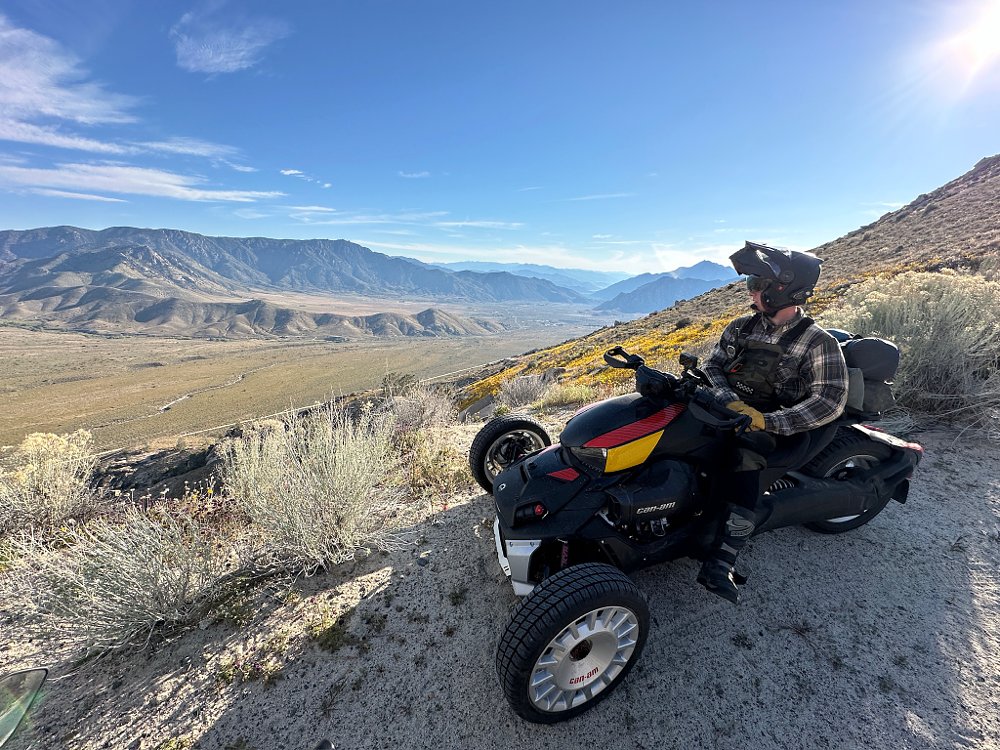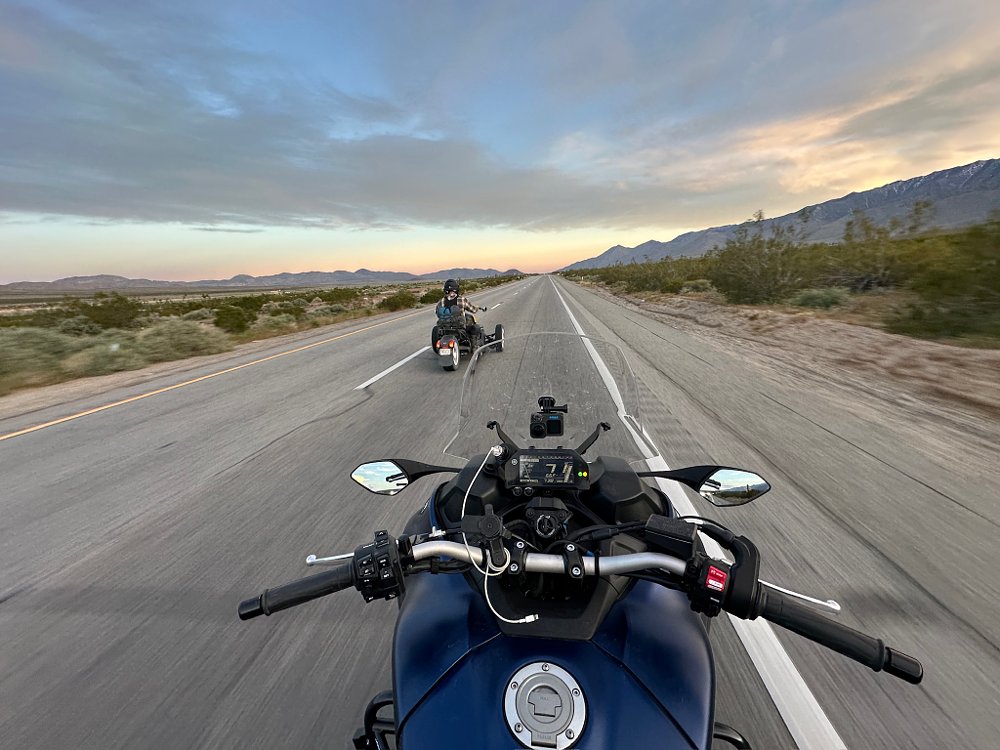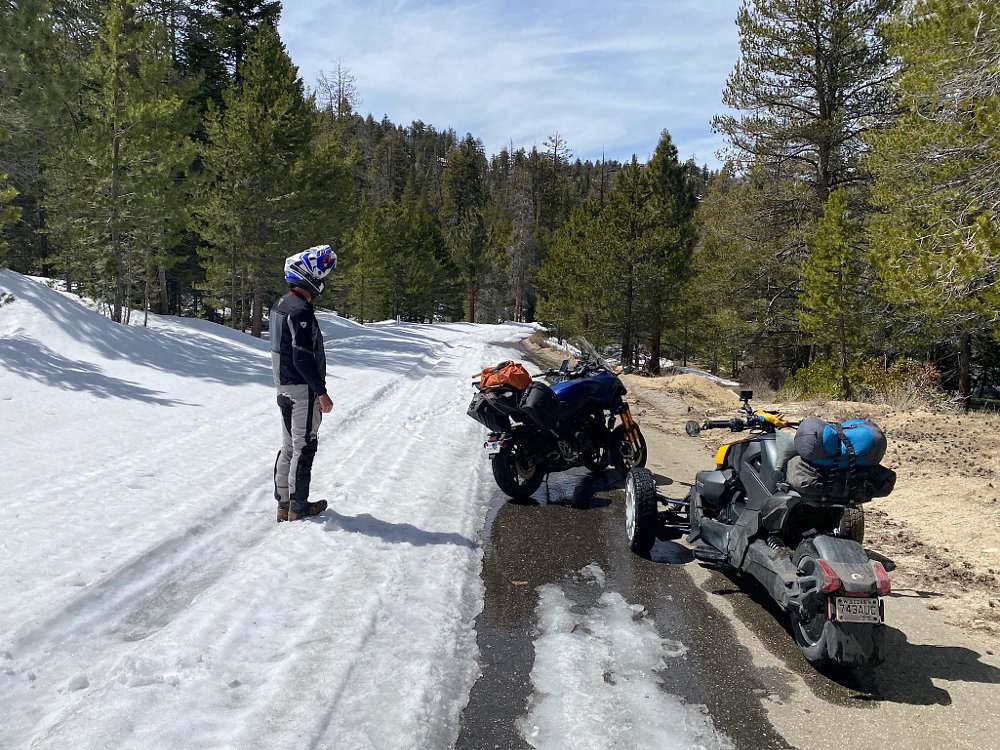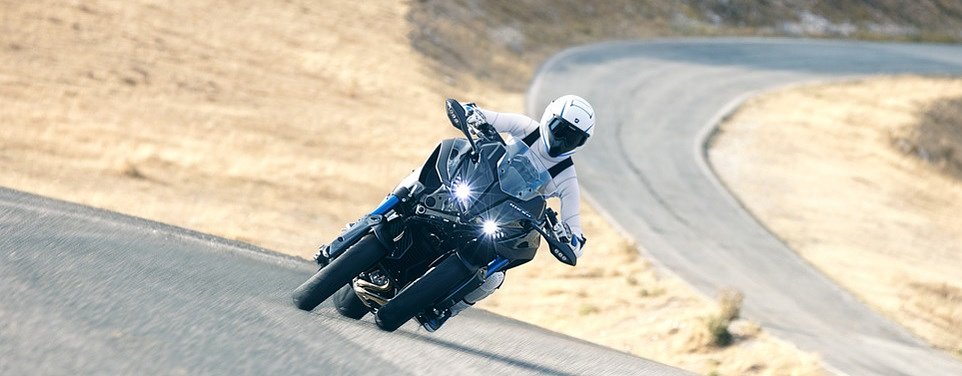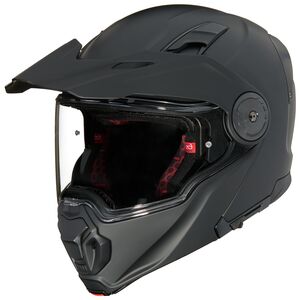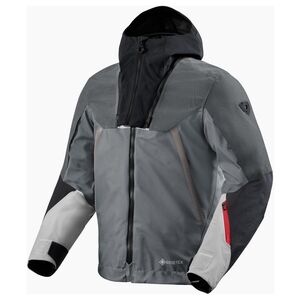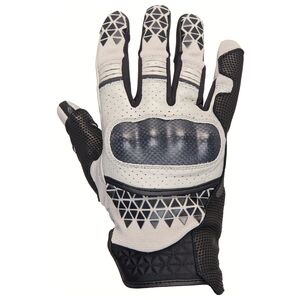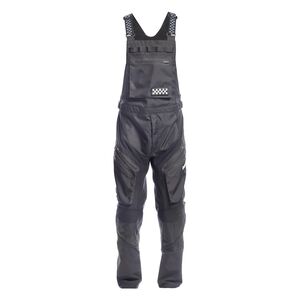When most of us learned to ride a bicycle, more wheels helped. Tricycles, training wheels, you name it, having more stability gave us the confidence we needed to grow as riders. Why not apply that same concept to the idea of riding off-road on heavy motorcycles? We are so glad you asked.
The team here at Common Tread XP essentially had the same question. If the idea of taking a 500- or 600-pound motorcycle to an adventurous setting seems intimidating, one way to solve that is to add points of contact on the ground. We all know the saying: (Almost) nothing adds stability like adding a wheel. The triangle is the strongest shape, after all.
Never mind sidecars, we’ve been to some of those places and done some of those things. No, not Honda’s infamous ATC either, poster bike for the maligned three-wheelers of the 1980s. Aren’t we past all of those asymmetries, imbalances, and lawsuits? This is the age of the reverse trike, or whatever name you choose, where the paired wheels are in the front of the machine. That’s the ticket.
We figured there was some real merit in taking the most capable three-wheelers we could find and tackling a true adventure ride. Dirt roads, sand dunes, water crossings, trails, snowy roads — if someone might find it on a long ‘n' lonely ride, we aimed to test it.
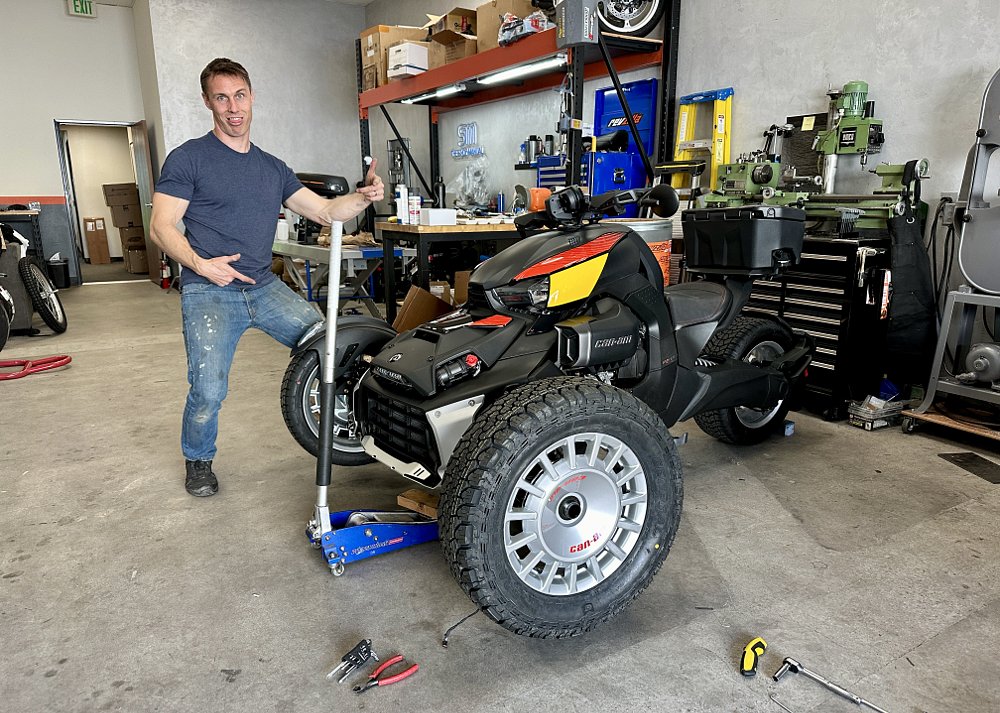
Maybe you’re rolling your eyes, thinking that the CTXP posse at RevZilla West has been popping too many ayahuasca gummies. But not so fast, we’re not the only ones with this idea. Enter the Can-Am Ryker Rally. Based on the most svelte of Can-Am’s three-wheeled offerings, the Rally version offers more suspension travel and a slew of adventurous accessories.
Can-Am, and its parent company BRP, are Canadian. That means that the corporate line on what the Ryker Rally’s capability is prudent, maybe even guarded. Unlike KTMs, Ducatis, or BMWs that are shown navigating rock gardens or splashing through a river, the Ryker has smaller ambitions, even in Rally form. Still, it’s got some of the kit you might want on a ride into the unknown. There’s a 5.3-gallon fuel tank, more than seven inches of suspension travel, and a skid plate. Also, a Rally mode built into the electronics that backs off the intervention of traction and stability control in slippery situations. Don’t forget burlier rims, more aggressive tires, and probably other things, as well.
Maybe the most suggestive and specific piece in the accessory catalog is a cooler, which mounts to the tail rack and can allegedly carry 4.2 gallons of anything you’d like to keep refrigerated. We couldn’t come up with a need for that, sadly. The little glove-box compartment in the Ryker’s forehead was handy, though, big enough to hold the CTXP adventure tool kit, some Rok straps, and a Lexin P5 air pump.
Much more to the point, the Ryker actually offers a few things that very few motorcycles do but seemed like they would be pretty handy on a road-trip-of-questionable-destination. The handlebar and footpegs adjust fore and aft, but not just a few millimeters and not with tools. Flip up the clamp handle and slide away, nearly three inches inches for the handlebar and 8.5 inches for the pegs. The adjustments are dramatic and ultra quick to execute. Pretty neat.
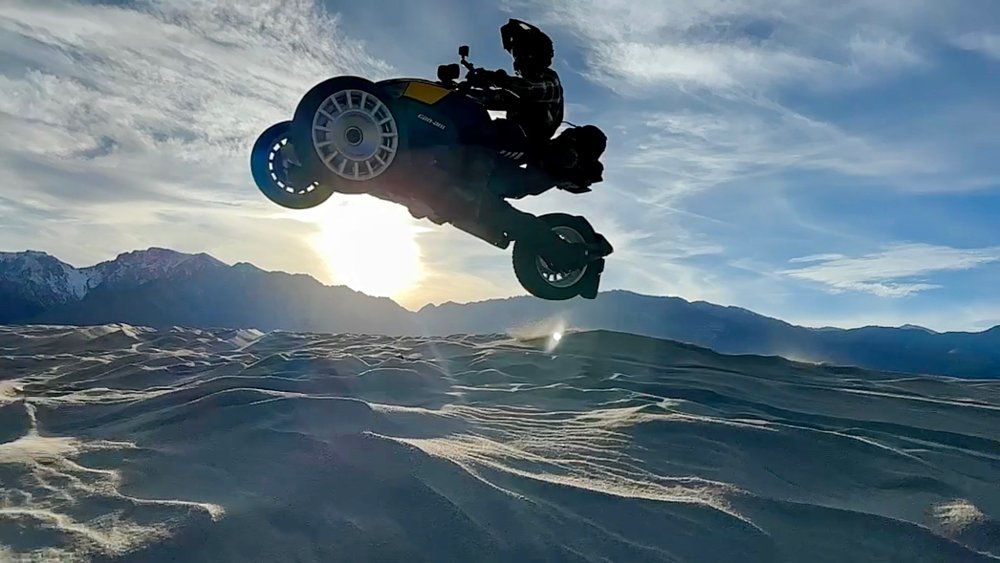
Sending the Ryker’s 700-ish pounds down the road is a 900 cc inline triple, rated at 82 horsepower and mated to a Conspicuously Viable Transmission, or CVT. There’s a reverse gear, too, which is the real party trick. It’s no monster truck, but it seemed like it might have a few cards to play, aside from the stable stance, on the way to Adventure Town.
With all of this innovation that Can-Am has aimed at the dirty world of ADV, there was really only one machine we could bring as a companion. Yamaha’s NIKEN. Theoretically, the two swords of the NIKEN offer more traction and stability due to having two front wheels, but at the same time a fairly similar experience to a motorcycle as far as chassis dynamics. A bridge, if you will, across the gap between conventionally leanable motorbikes and the Can-Am tripod.
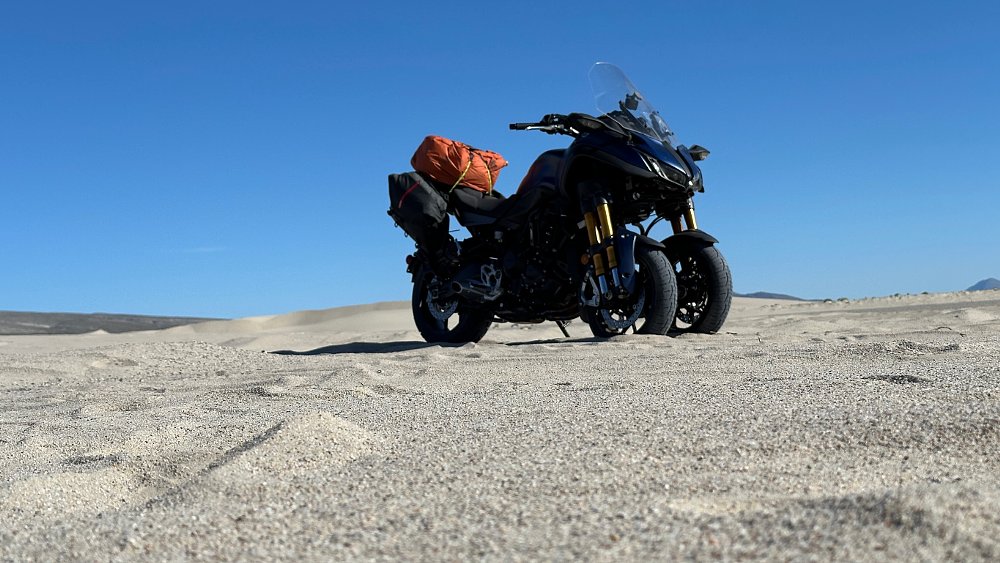
The NIKEN is no longer for sale in the United States and very much absent from Yamaha’s press fleet, which sent us to the used market for an example. After the most extravagant vehicle purchase that CTXP has ever made, a 2019 NIKEN GT was in the shop and ready for action. Almost.
The next practical step was modifications, as any self-respecting ADV’er will tell you. Trouble is, what to do? Since the rear tire was roached, we mounted some Conti TKC 70 rubber for a little bit of traction, and what we presumed would be a lot of trail cred. However, the Michelin Pilot Road 4 tires mounted up front were not ideal.
Pop quiz: What’s the best knobby, off-road tire that comes in 120-section and fits a 15-inch rim? This is not a rhetorical question, we couldn’t find anything on the world wide internet that seemed like it would work. We even went back to the tried-and-true Golden Boys that carried our vintage CT-90 across Alaska, but it wasn’t to be.
No matter, the Can-Am accessory catalog showed 97 items (including the cooler) and it looked as ripe as you’d like for sweet ADV mods. We browsed other YouTube channels and found a few examples of Ryker Rallys that had been “enhanced” for off-road use, but none of it tickled our triples. The most obvious route to more capability was lifting the whole thing up, so we tried that.
When the shock extension made for most Ryker models didn’t fit the Rally, we looked to simply add a beefier tire to the stern. Many before us have tried, and published their failures. It turns out the single-sided swingarm is designed with barely enough clearance to allow the mild, all-season style tire to fit.
Unable to quickly lift the rear, we turned to the front where we opted to pull the wheel-mounted fenders and install the most biggest (!) truck tires that seemed tenable. The Ryker Rally looked awesome — Chest out like a trophy truck and ready to soak up literally any… aww crap, it went into limp mode. Evidently, we freaked out the wheel speed sensors and the Ryker was unrideable.
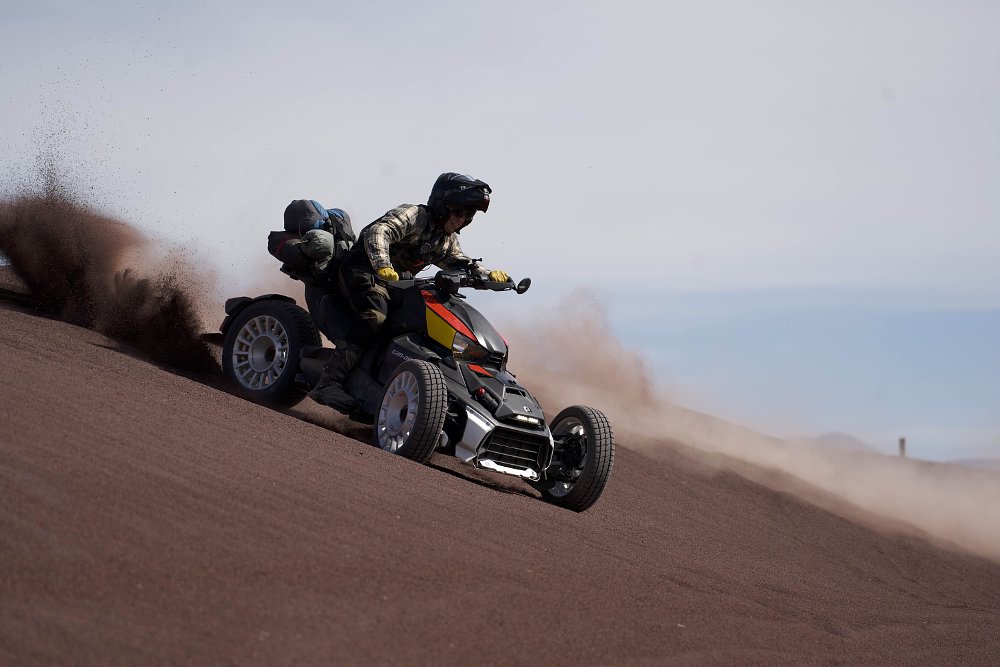
Tails ‘twixt our legs, the team retreated to the shop, reinstalled the stock tires, and headed for the wilds of California’s Southern Sierra. On largely stock three-wheeled machines. Quite possibly our silliest idea to date, though it didn’t necessarily shake out that way.
Our experiences on the bikes certainly varied, as the video shows, but the upshot was anything but predictable. It turns out there is, actually, some merit to the idea that more wheels equals more stability. Obviously, the Ryker represents a fairly extreme version of stability. No leaning, and no tipping over unless you do something monumentally dumb.
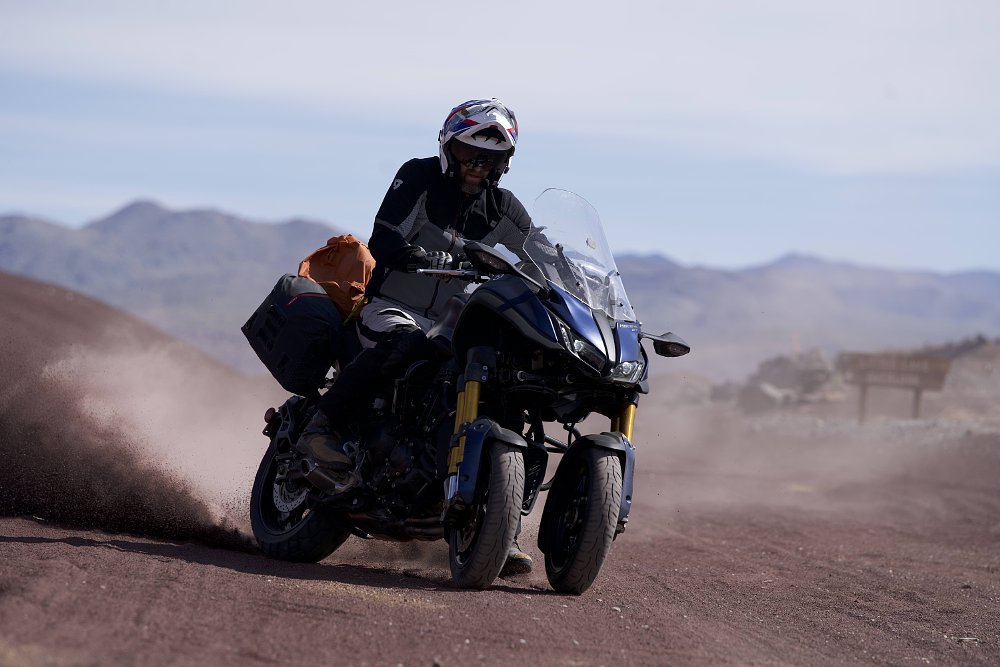
The NIKEN looks just as strange as it did when it debuted, about seven years ago, maybe even more so with dirt under its tires. With not-even-five inches of travel in the forks, it’s hard to argue that it’s equipped properly for gnarly overlanding. It did make us scratch our chins a little bit and wonder what more tires touching the ground could do for off-road confidence. Then again, if this is the closest we ever get to finding out, we wouldn’t be surprised.
Some of the time, we felt a little hamstrung by our weird choice of vehicle(s). To be fair, that happens again and again (and again) with CTXP, so that might be more of a promise than a surprise. For at least a few brief moments, our three wheelers were actually better than a motorcycle would have been. Mostly though, we just had fun. Like we’ve been trying to do ever since we learned how to ride.





